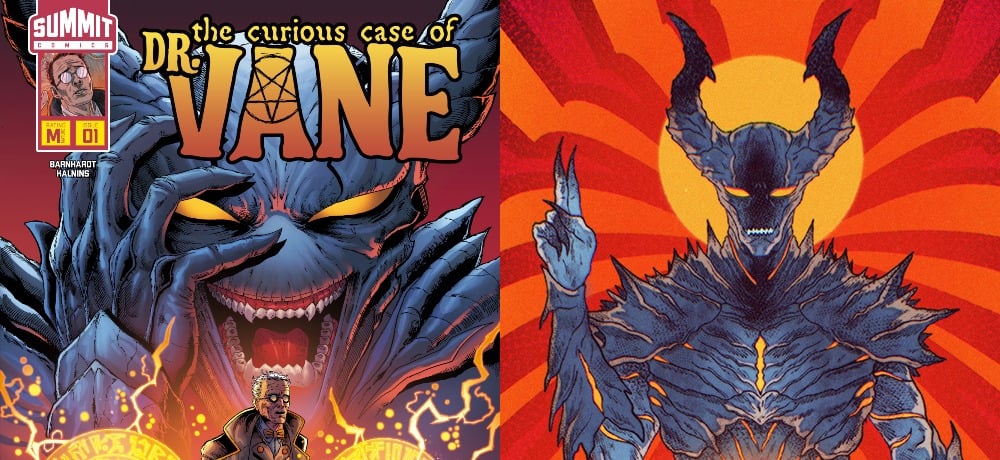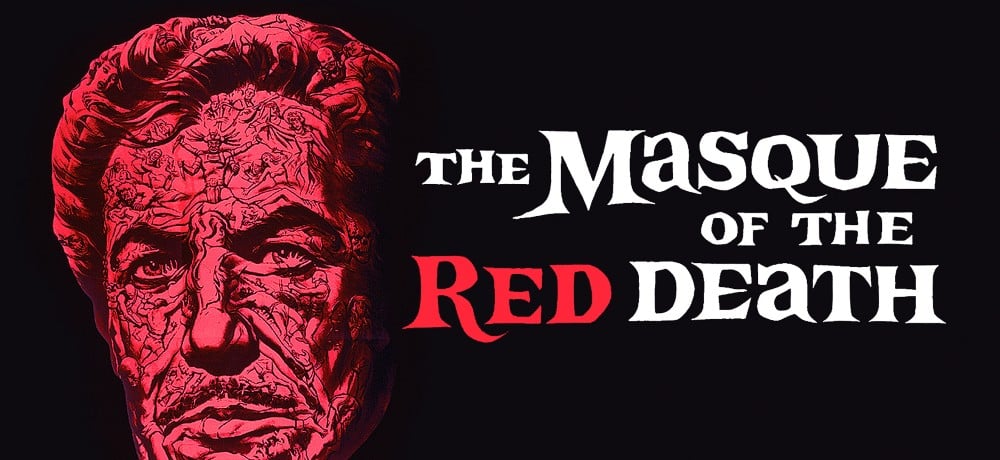






This weekend is The International Edgar Allan Poe Festival & Awards, commemorating the 175th anniversary of Poe's death in Baltimore. Taking place from October 4th - 6th, the event also celebrates a big milestone: the 60th anniversary of Roger Corman and Vincent Price's The Masque of the Red Death.
The event includes a panel of special guests to talk about the film and its legacy, including Victoria Price, whom I had the pleasure of speaking with to talk about the importance of the film, Vincent Price's lasting impact, and her Halloween celebrations.
The festival will have a 60th anniversary screening of Roger Corman and Vincent Price's The Masque of Red Death, which is a personal favorite of mine.
Victoria Price: Me too! Roger was one of those people I thought was going to live forever, so it's strange to not have him here.
He left such an impression on the people he interacted with. It's amazing the life and career he had. There have been a lot of celebrations and retrospectives since Roger Corman passed away, and it's been a great way to celebrate his life and work, along with your father's. I also think it's great that there are still so many people being turned onto The Masque of the Red Death and seeing it for the first time. Why do you find the film so fascinating?
Victoria Price: One of the reasons, for sure, is the cinematography. Nicolas Roeg's cinematography is amazing, and that's a huge component for me. And, then, my dad was born in 1911, so it's a very different thing than now. The majority of the people don't have a daily relationship to religion that my dad's generation did. My dad wasn't necessarily a regular churchgoer, but it was just something that he was thinking about constantly, and it was tied into his love of art history.
So it was this sort of fluid conversation he was always having with himself, and I feel that whenever I watch this movie more than any of them. Of course, a lot of his movies deal with Satan or the dark side, and certainly the ones that have to do with witches have politics and religion, but there's something very different about The Masque of the Red Death. It almost feels like a reflection of some of my dad's own thinking about his place in the horror genre as it related to his daily spirituality.
I’ve seen many people who have watched and/or read The Masque of the Red Death for the first time more recently, as its take on a plague had parallels to the pandemic.
Victoria Price: Right, same with The Last Man on Earth.
Yeah, definitely. In some ways, these movies take on an all-new meaning for this generation, but it also speaks to the timeless message and themes.
Victoria Price: My dad never would've guessed that horror would become the genre that displaced the Western as a driving box office genre. It’s now revered and not mocked. That certainly was not the case when he was the king of horror.
He understood the timelessness of it because he was the voice of Poe from the early '60s on for many decades. They’re short stories that don’t tell you everything, so you're not just being spoon-fed a story. They’re 10 or 20 pages that take root in your imagination. That's an incredible thing to have young people be able to engage in that way.
It’s interesting because for so many people, myself included, their first introduction to Poe had been through your father.
Victoria Price: I have to give a shout-out to all the junior high teachers who got to school and thought, "I'm not in the mood," and then thought, "Thank god for Vincent Price!" They just turned my dad on and introduced their students to Poe. As a result, it also introduced those students to my dad.
A lot of folks associate Vincent Price with his films and with the works of Edgar Allan Poe, but he was a Renaissance man. He loved to cook, he had passion for the arts, especially paintings and poetry. Can you talk about his life outside of horror that not many people may be aware of?
Victoria Price: He fell in love with the visual arts when he was eight years old. He bought his first piece of art, which happened to be a first-state Rembrandt etching, when he was 12. He had to pay for it with his allowance and money he earned over three years, so he didn't take possession of it until he was 15.
His favorite poets were the romantic poets. That was something he loved about poetry; he loved Cely and Byron, and so that romantic sensibility made him so perfect for the horror genre, because his approach came from his love of the arts.
My dad was not the king of horror post-80s, although there was Thriller and Tim Burton, but he was the king of horror when it was largely Gothic horror. That started in the 1940s when he did a film called Dragonwyck. There absolutely was, for him, this fascination with Gothic horror.
So that was his great passion, and many of the artists he loved most came from that same period, out of which that Gothic sensibility sprang. There wasn't like, “This is an art, and that's a craft; this is an art, and that's cooking.” He understood that the arts had a broad scope to them, and he was interested in learning about them, promoting them, and helping your average person have access to them—That was a huge thing for him.
When I was younger, I was drawn to his movies, but as I got older and learned so much more about him as a person, and everything he did outside of movies, it made me appreciate him and his work even more.
Victoria Price: First of all, I love that. He understood that that was something that was a perk of his fame, that he could use his fame to promote the thing that he cared so profoundly about, the arts. Now, the other part of that is that I believe in that sort of larger sense of what gifts were given in our lives. In a way, I feel like he was given the gift of fame because he was going to do something with it that would have meaning.
I'm not entirely sure that that continues to happen as frequently as it could in our world. There are obviously many people who use their fame to do really great things, but there are also many people who believe that fame is the goal, and that was never what my dad felt. So to hear that you came to him through the movies and then found these other things and really loved that, that's exactly what he wanted during his lifetime. The fact that it's still happening—he would be so grateful for that.
Now that we’re in October and the Halloween season is in full swing, I was interested in hearing about your experiences with Halloween growing up and over the years.
Victoria Price: Halloween is now the second largest retail holiday in the world, or at least in the United States. It certainly wasn't that then. Boris Karloff always used to say, "Halloween is my busy season,” and I love that, so I've sort of adopted that because it's become my busy season.
It certainly was my dad’s busy season, and so I remember carving pumpkins with my mother. My mother was not even remotely into the scary stuff, and so I remember carving pumpkins with my mom and that her pumpkins were always so happy-looking. They were always female, she kept the stem on, and she often put a bow on them. And it was her opportunity to reclaim and counteract the scary. And because she was a costume designer, her pumpkins were always great-looking, but they weren't scary in the least. So I always loved that.
When my dad was around, we would sometimes have parties for my friends. Of course, my friends all knew that he was “the scary guy.” Sometimes we'd go trick or treating, but my parents were very, very strict about how much candy I had. So the focus was definitely on where the best candy was coming from and how I could get it.
Also, my mother, the costume designer, thought this was her opportunity to show off her costume design skills to her daughter. And you know how it goes. When you say you want to be something, you really want to be that. You don't want to be her idea of the Bob Fosse version of a black cat. You want to be a black cat. And I was like the Bob Fosse black cat or a freaky orange clown, and I hated clowns.
So Halloween was a mixed bag for me, except when my dad was around. And then he'd take us trick-or-treating and we'd do something fun. And honestly, literally anything with my dad… cleaning toilets with my dad would've been fun. He was that special. People often say, "When did you know your dad was special because he was famous?" And I was like, "my dad became famous because he was special and he was different.”
---
To keep up with everything from Victoria Price, visit: https://www.victoriaprice.com/
To attend The International Edgar Allan Poe Festival & Awards, visit: https://poefestinternational.com/
To purchase books from Victoria, Vincent, and Mary Price, visit: https://bookshop.org/shop/imvictoriaprice